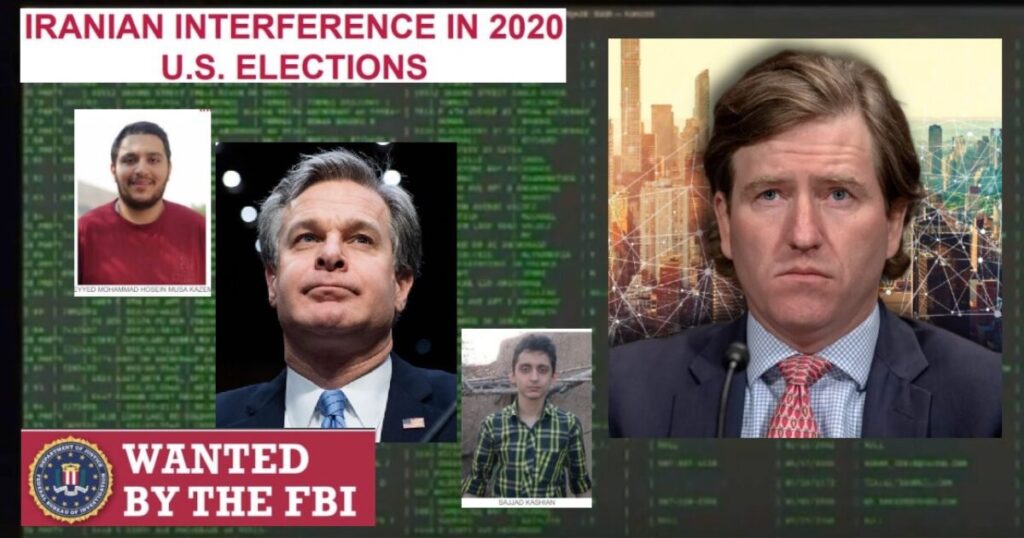In recent months, revelations have emerged suggesting that FBI Director Chris Wray and former CISA Director Chris Krebs concealed significant information regarding an Iranian election security breach that occurred during the 2020 U.S. presidential election. While the election was touted by the Democratic Party and various officials as the most secure in U.S. history—most notably by Krebs in his December 2020 congressional testimony—the truth appears to be far more complicated. Investigative reports and recently unsealed court documents indicate a successful breach of voting infrastructure that was kept under wraps for nearly four years, raising serious questions about the security of the electoral process during this contentious period.
Krebs’s assertion in December 2020 that the 2020 election was the most secure was echoed by many, but new evidence suggests that this claim may have been misleading at best. Just before the election, on October 30, 2020, the Cybersecurity and Infrastructure Security Agency (CISA) prepared a report warning about the intent of Iranian cyber actors to influence and interfere with the election. This report, however, remained largely undisclosed to the public and neglected to mention a critical fact: that Iranian hackers successfully breached a state’s election database days prior to Election Day. Investigative journalist Yehuda Miller uncovered this report via a FOIA request earlier this year, revealing significant gaps in the information that was shared with the public at the time.
The CISA report from October indicated that Iranian advanced persistent threat actors were creating fictitious media sites to spread misinformation and undermine public confidence in the electoral process. However, specific details regarding a security breach—including the successful compromise of Alaska’s voter roll database—were omitted. This breach granted hackers access to sensitive voter information, such as names and Social Security numbers, and raised alarm about the potential misuse of this data for voter fraud through unauthorized registration for UOCAVA ballots. The severity of these developments indicates that the election may have been compromised significantly, contrary to earlier reassurances from top cybersecurity officials.
Further investigations indicated that two Iranian nationals were indicted for their involvement in this cyber intrusion, which included voter intimidation tactics. The indictments revealed that these individuals conducted reconnaissance on numerous state voter websites and ultimately infiltrated Alaska’s voter registration system. The hackers shared a video online, showcasing how easily they could manipulate voter registration data to fabricate voters, highlighting the simplicity of breaching election security protocols. This incident underscored that significant threats to election integrity existed during the 2020 election, a disturbing reality that was kept from the public eye.
Charges against these individuals, which included computer intrusion and various intimidation offenses, illustrated a coordinated effort to undermine the democratic process in the U.S. The existence of such a video and the subsequent revelations regarding the ease with which the hackers could exploit vulnerabilities raised crucial questions about the robustness of the cybersecurity measures in place during the election. Notably, U.S. officials like Chris Wray, Bill Barr, and Chris Krebs have been accused of withholding vital information about this breach, which could have informed the public about the potential risks posed to the electoral process during a time when confidence in democracy was already precarious.
As the details surrounding the Iranian breach came to light months after the election, the implications for election security were immense. The findings suggest that not only was the integrity of the 2020 presidential election compromised but that key government figures either failed to act on critical intelligence or purposefully obscured the truth. As investigations continue and more information is uncovered, it raises concerns about the transparency and accountability of cybersecurity efforts surrounding future elections. In a digital age where election security is paramount, the revelations about the Iranian interference in 2020 underline the need for rigorous safeguards to protect the electoral process from external threats.

